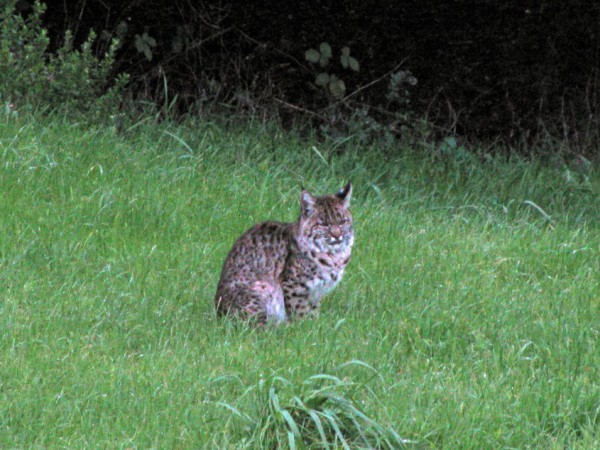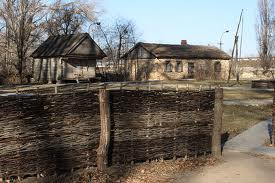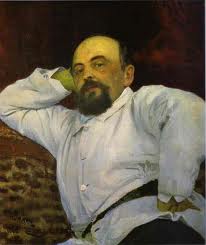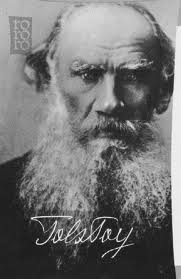
What an extraordinary turn of events. The plot twists found in Part Four of Anna Karenina created, for me, a literary mazurka – a spirited dance of grace and gallantry. A quick Google search informed me that the mazurka quadrille was a wildly popular social dance during the mid and late 1800’s when Tolstoy was writing. This fact-paced dance was done by four couples coming together and shuffling apart, holding hands and linking elbows, moving clockwise and counterclockwise, clicking heals and stomping feet; it’s a dance that has promenades and genuflections.
For my quadrille analogy to work, we have to see Anna as two separate women – Anna with her much older husband, Alexei Karenin, and Anna with her young lover, Alexei Vronsky. Stepan Oblonsky (Anna’s brother) and his wife Dolly, and Konstantin Levin and Kitty (Dolly’s sister) complete the four pairs.
The music of the mazurka is bold, fast, and complex. Chopin wrote dozens of mazurkas from 1825 to 1849. His musical genius infused the mazurka form with fugue and counterpoint elements to heighten its interest and intrigue; listeners almost leaned forward to catch every keystroke. The notes are simultaneously independent and harmonious creating robust and ironic musicality. All of this is to say that the intricacies of a mazurka and Part Four of Anna Karenina have much in common.
Part Four begins with Vronsky working what he feels is a “tiresome” and “irksome” seven-day detail. He must care for a visiting foreign prince, show him the sights and keep him entertained. The self-satisfied royal is unstoppable in his pursuits of pleasure; his endless energy keeps him “as fresh as a big glossy green Dutch cucumber.” What is most offensive to Vronsky about his royal charge is the degree to which he resembles himself. Revolted, Vronsky is more than happy to be rid of the man and his unflattering reflection at the end of seven days.
Thoroughly exhausted and eager for peace, quiet, and rest, Vronsky returns home to discover a note from Anna insisting that he come see her at her husband’s house right away. She is too ill from her pregnancy and to unhappy to get to him. This is clearly a breech of conditions set forth by Alexei Karenin. Karenin had agreed to ignore the infidelity as long as Anna respected decorum and his dignity and kept it outside their home.
As fate would have it, the two Alexeis cross paths in the doorway of Karenin’s house. In an odd, wordless exchange, Vronsky bows and Karenin tips his hat in passing. Distasteful as the encounter was, Vronsky’s discomfort did not end there. After a week’s absents, Anna is shrill and beside herself with need. She greets her lover by scolding him for being late, and she accuses him of chasing loose women and keeping secrets from her. She punctuates each accusation by stabbing at her crocheting. Her jealousy is unwarranted and most unattractive. Vronsky notices her loss of luster but gives his dearest a pass because of her advanced condition.
Karenin had left the house to go see an Italian opera. When he returned home, he did not go to his wife until the next morning, and in a dramatic move of his own, he forcibly takes her love letters from Vronsky. His fury is so intense that he stumbles over his own carefully planned words. Anna detests her husband, and the power he holds over her. She is trapped in his world with no means to affect her own freedom. Powerless though she may be, she is not weak. He tries to shame her and her “animal passion.” She very nearly out-shames him. “Surely you must feel how easy it is for you to insult me?” she says. Each of them cries out that the other is “base.”
Karenin leaves Petersburg and goes to Moscow where he begins proceedings to file for divorce. While in Moscow, whom should he run into but Anna’s perennially joyful brother – Stepan Oblonsky. Stepan insists on having a dinner party, and Alexei absolutely must join them. In no mood to comply with social convention, Alexei declines the invitation and is forced to inform his brother-in-law of the unfortunate shift in family status. Stepan is flabbergasted but refuses to take no for an answer. He convinces Alexei to come to the party by entreating him to speak to Dolly, that she will help him find his way to a forgiving heart.
Stepan truly wishes to help in Alexei’s situation, but he also wants to throw a good party. The guest list includes Konstantin Levin and his intellectual brother Sergey. Unbeknown to Levin, Kitty and her father, Prince Shcherbatsky, will also be in attendance. And to further stir the pot, Stepan has invited a couple of political rivals. Stepan shows himself to be a brilliant host, stirring conversation while providing the best liquor and food to his guests. For Kitty and Levin, the party is a private affair. Leaving the past behind, they gravitate toward one another with the force of magnetic north.
Several of the men participate in a parlor debate about the rights of women, of all topics. It comes across as more of a game than serious discussion. Each man seems to enjoy the sound of his own voice, postulating with bloated circumlocution. Let’s just say they come across as a bunch of pompous windbags.
Dolly and Karenin do find their time alone, but Karenin is unconvinced. He’s too angry and bitter to hear her reasoning. With him we see the deadening effects of love gone wrong. Meanwhile, in another room, Kitty and Levin are on fire with love, easily finishing the others’ every thought and sentence. The two lovebirds play a peculiar game using chalk and writing the first letter to each word in a sentence. Through this game they encode apologies and a second marriage proposal. The two represent the opposite end of the spectrum from Karenin; they are deliriously in love. The wedding is announced, and to Levin, the entire world is a better place.
Not so for Karenin. When he returns to his room, he receives a summons from Anna. She’s dying, and he must return home ASAP. On the long train ride back to Petersburg, Karenin ruminates on the beauty of her dying. It would solve all of his problems. He would not appear to all of society as a man who divorced his wife. The scandal would be over.
Now Anna, feverish and a breath away from death has poor, devastated and distraught Vronsky at her bedside. In her delirium, she begs for the return of her husband. She knows that, through it all, Karenin is a good and righteous man at his core. When Karenin enters, he’s taken aback by her praise and adulation. She pleads with all of her waning might that he forgive Vronsky. Suddenly, by virtue of her exalted respect, Karenin is transformed. He no longer hates his wife, he loves her, and he no longer resents his rival, he forgives him.
Karenin’s almost-holy goodwill annihilates Vronsky. Vronsky “felt disgraced, humiliated, guilty, and deprived of all possibility of washing away his humiliation.” Forgive this long quote, but it goes on and is too stunningly brilliant to leave out. “He felt thrust out of the beaten track along which he had so proudly and lightly walked till then. All the habits and rules of his life that had seemed so firm had turned out suddenly false and inapplicable. The betrayed husband, who had figured till that time as a pitiful creature, an incidental and somewhat ludicrous obstacle to his happiness, had suddenly been summoned by her herself, elevated to an awe-inspiring pinnacle, and on the pinnacle that husband had show himself not malignant, not false or ludicrous, but kind and straightforward and dignified. Vronsky could not but feel this, and the parts were suddenly reversed. Vronsky felt Karenin’s elevation and his own abasement, Karenin’s rightness, his own wrongdoing. He felt that the husband was magnanimous even in his sorrow, while he had been base and petty in his deceit.” Wow!
Part Four doesn’t end there. Vronsky goes home and shoots himself. Aiming for his heart, he misses and survives. Anna also survives. With the return of her health, so returns her loathing toward her husband. Anna’s invectives lacerate Karenin’s heart, but since his transformation, he remains steadfast in his forgiveness of all her shortcomings. He even finds love and compassion for the new baby girl that’s been born, Vronsky’s daughter. It’s impossible not to feel sorry for Karenin. He’s twenty-years her senior. He comes across as a father who tried to be strict, and when that didn’t work, became indulgent. When Stepan shows up at the house, the beaten down Karenin is willing to hear any advice; all he wants at this point is for Anna to be happy. Stepan now suggest going through with the divorce. Karenin agrees. Oh, if it could only be that simple, that cut and dry. Anna refuses the divorce. She says it doesn’t matter anymore.
Instead, Part Four ends with Vronsky quitting his job with the military and He, Anna and the baby girl go abroad to live in Italy. Karenin keeps his son, Seryozha, with him in Petersburg.
One last detail that needs to be mentioned, somewhere during her illness, all of Anna’s hair was cut off, giving her a boyish appearance. A whole paper could be written on that symbolism alone.
Well, I’m now more than halfway finished with Anna Karenina. What will Tolstoy do to top it? Wow!
Enjoy the week, and I’ll write again next Friday.













